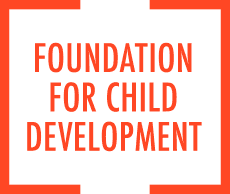https://www.fcd-us.org/para-nuestros-ninos-expanding-and-improving-early-education-for-hispanics/
The Task Force on Early Childhood Education for Hispanics released a national report, Para Nuestros Niños: Expanding and Improving Early Education for Hispanics, in Washington, D.C. on March 8, 2007.
Hispanic Children Gain an Academic Edge When Their Education Starts Early
The National Task Force on Early Childhood Education for Hispanics urges that Hispanic children be enrolled in high quality education programs as early as possible in order to make more rapid progress in closing the Hispanic-White achievement gap. The Task Force released a national report, Para Nuestros Niños: Expanding and Improving Early Education for Hispanics, in Washington, D.C. on March 8, 2007.
Hispanic children, especially those from disadvantaged circumstances, continue to lag behind non-Hispanic Whites on measures of school readiness and school achievement, including in reading and mathematics. At the same time, there is growing evidence that large state-funded prekindergarten (pre-K) programs are producing valuable school readiness gains for Hispanic youngsters who have the opportunity to attend them. Head Start also is beneficial. In addition, high quality infant/toddler programs can contribute to greater school readiness. Thus, the earlier Hispanic children have access to high quality educational programs, the better.
However, despite the benefits of greater access to such programs, Hispanic youngsters continue to be underrepresented among children who attend pre-K for several reasons. Among them are an inadequate supply of affordable preschool seats in many Hispanic communities, a lack of information for Hispanic parents on the programs that are available, and language barriers with program operators.
An important component of high quality early education for Hispanic children who are English language learners (ELLs) is having the opportunity to learn in both English and Spanish. There is a great deal of evidence that K-3 education that provides instruction in both languages leads to higher achievement among Hispanic ELLs. There also is evidence that the use of both languages in preschool can contribute to greater school readiness for these youngsters.
Although extremely valuable, the most effective existing infant/toddler, pre-K, and K-3 strategies are able to close only part of the readiness and achievement gaps between Hispanics and Whites. As a result, there is a need to engage in research and development in these areas that would involve extensive design, testing, and evaluation of new or improved strategies at all three of these levels. A great deal of emphasis should be on pursuing more effective ways to improve early language development among Hispanic English language learners from disadvantaged circumstances, owing to the importance of early language skills in predicting later success in school.
The Task Force’s major recommendations are to:
Increase Hispanic Access to Quality Early Childhood Education Programs
The Task Force recommends that the federal government undertake a substantial expansion of Early Head Start and Head Start that will help to ensure that disadvantaged Hispanic children have greater access to high quality infant/toddler and pre-K programs. Similarly, states governments should expand and increase infant/toddler and pre-K programs in their states. Although providing universal pre-K should be the ultimate goal for states, priority should be given to expanding access for disadvantaged children, including disadvantaged Hispanics. States also should provide information to Hispanic parents on the availability of pre-K programs in their communities.
Increase the Number of Spanish-Speaking Teachers and Second Language Acquisition Specialists
The Task Force recommends that states establish programs to increase both the number of pre-K and K-3 teachers who are proficient in Spanish and English and the number of pre-K and K-3 teaching specialists in second language acquisition. The federal government should underwrite tests of programs for these purposes to help identify approaches that are most effective.
Increase Efforts to Design, Test and Evaluate Language and Literacy Development Strategies
The federal government is the major source of funds for education research and development. Consequently, the Task Force recommends that the federal government underwrite extensive experimentation with early education strategies concerned with determining how best to promote language development among disadvantaged children, including Hispanics. This work should include testing various English-plus-Spanish approaches for infant/toddler programs, pre-K, and K-3 education that serve disadvantaged Hispanic ELLs. Infant/toddler and pre-K experiments should include an assessment of different combinations of full-day, year-around, and multi-year programs.
About the Task Force
Funded primarily by the Foundation for Child Development, the National Task Force on Early Childhood Education for Hispanics was established in May 2004 for the purpose of identifying major educational challenges facing Hispanic children from birth through the primary grades and to make recommendations for action. Other grants in support of the Task Force have been provided by the Marguerite Casey Foundation, the A.L. Mailman Family Foundation, the Peppercorn Foundation, and the Winthrop Rockefeller Foundation. Additional support has been provided by the Coca Cola Corporation, Scholastic and the California Community Foundation. The Task Force’s reports, policy briefs, and working papers are available at http://www.ecehispanic.org/.
